Montparnasse Cemetery is one of the four grand cemeteries of Paris, along with Montmartre, Père Lachaise, and Passy. It’s the second-largest in the city with over 35,000 graves (and many more buried). Despite all the death, this cemetery also serves as one of the city’s most serene green spaces, with wide, shady avenues and hundreds of trees and shrubs.
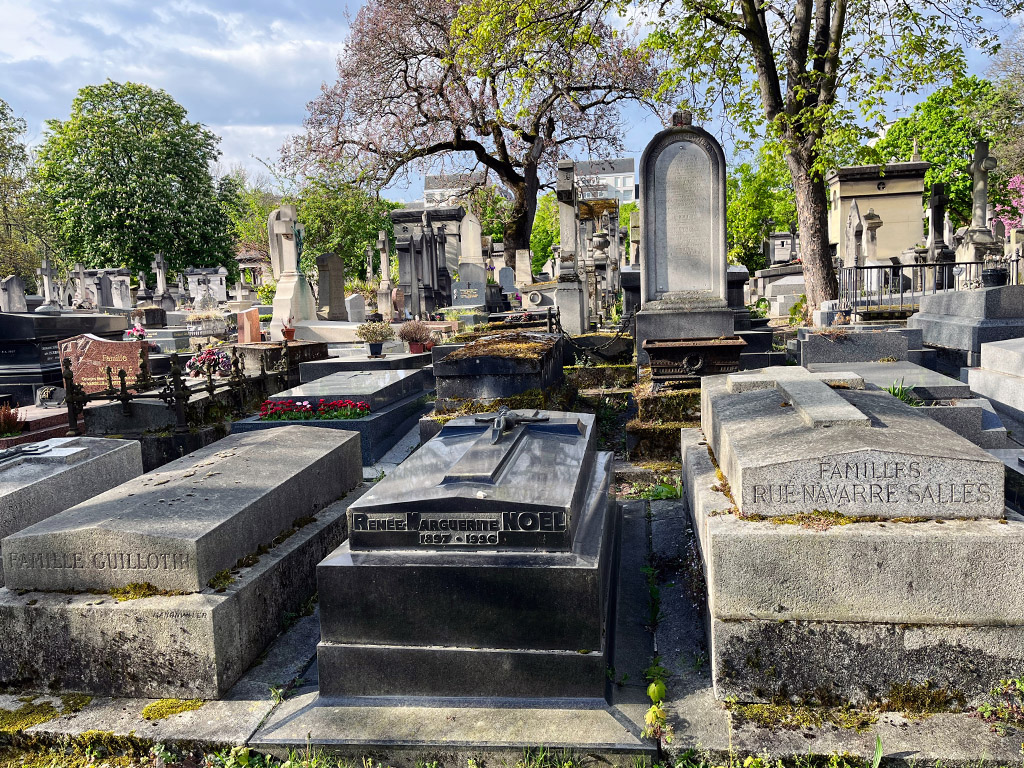
Location
Address: 3 Bd Edgar Quinet, 75014 Paris, France
The main entrance to the cemetery is north of Boulevard Edgar Quinet near the Edgar Quinet Métro station.
Hours: Monday–Wednesday: 8 a.m. – 6 p.m. Thursday & Sunday: 9 a.m. – 6 p.m. Closed Saturdays.
History
Montparnasse Cemetery sits on what was once farmland. At its center stands a 17th-century stone windmill, blades long gone. In the 18th century, the windmill became part of an open-air dancehall and tavern. When the cemetery opened in 1824, it was repurposed as the caretaker’s quarters.
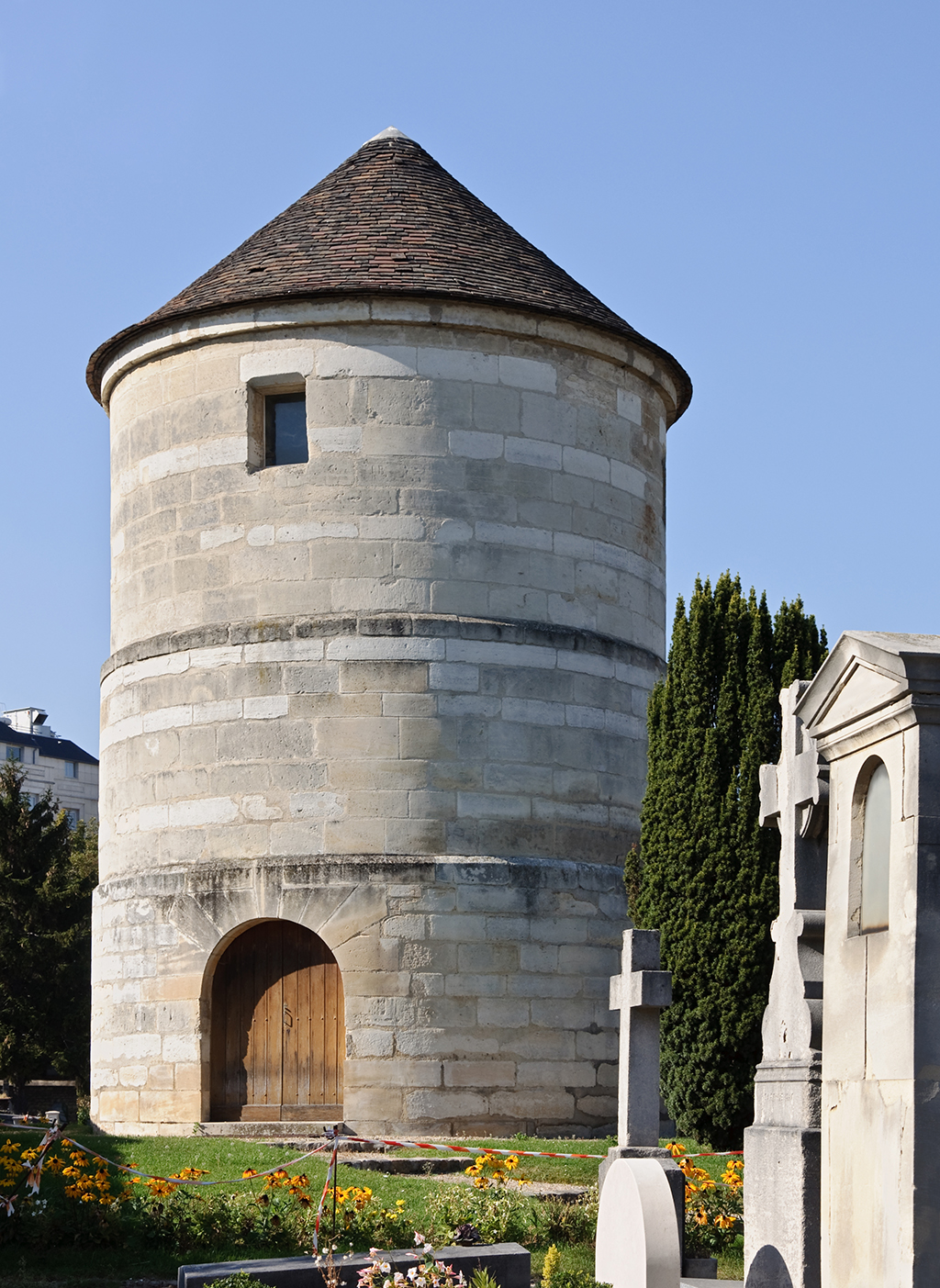
In the early 19th century, Paris banned burials within city limits due to overcrowding and public health concerns. New cemeteries were created just outside the city’s boundaries, with Montparnasse (then called Le Cimetière du Sud) serving the southern part of Paris. Montmartre was founded in the north, and Père Lachaise in the east.
Graves of Note
Here’s a map of Montparnasse Cemetery.
Jean-Paul Sartre and Simone de Beauvoir: Right near the Edgar Quinet entrance (Division 20), you’ll find the shared grave of philosophers and lifelong partners Sartre and Beauvoir. Their open relationship was as famous as their writing — Beauvoir, a vocal critic of marriage, called their union a “soul partnership.”
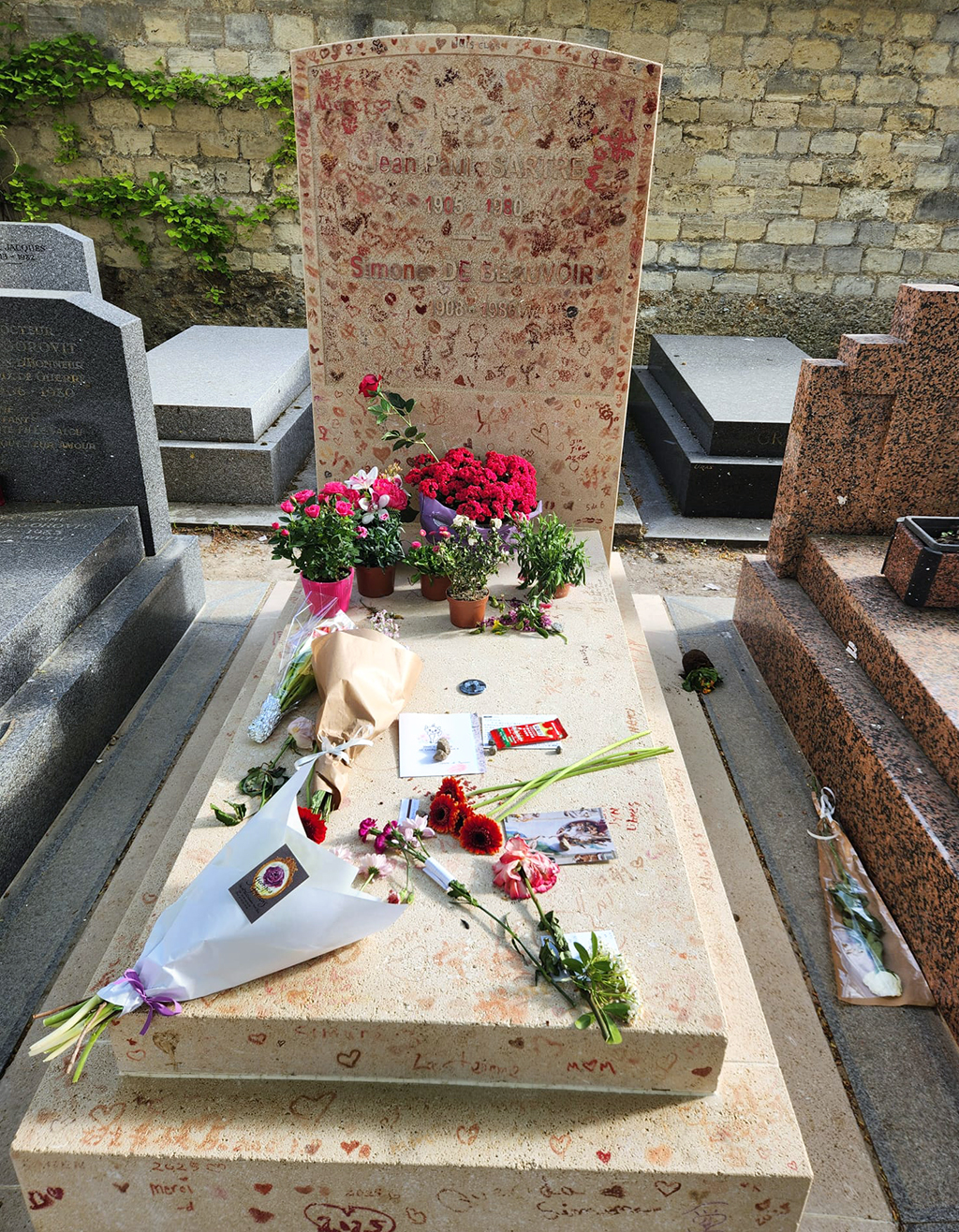
Charles Baudelaire: The famed poet of Les Fleurs du Mal (Flowers of Evil) is buried alongside his mother and his stepfather, General Aupick — a man he famously did not have a good relationship with. Aupick’s name tops the tombstone (Division 6), inspiring fans to erect a separate cenotaph for Baudelaire in Division 27. The bronze bust depicts the poet deep in thought, chin resting on his hands like a broody version of Rodin’s The Thinker.
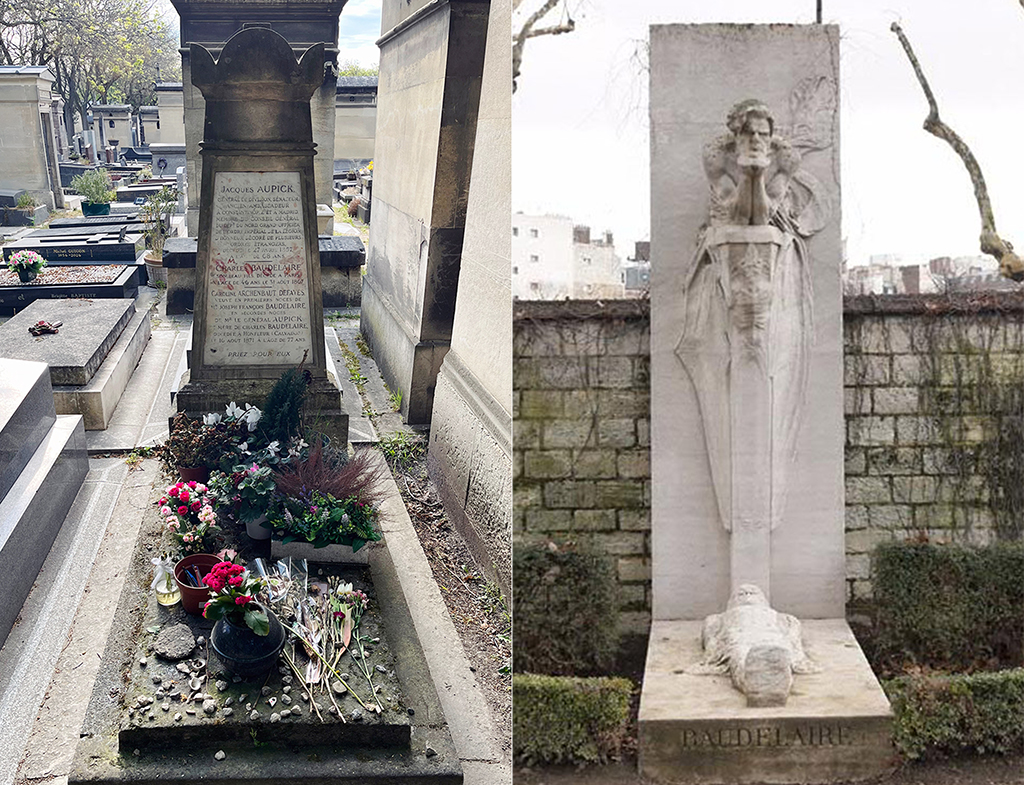
Samuel Beckett: The Irish author and playwright spent much of his life in Paris. His simple marble tomb is in Division 12.
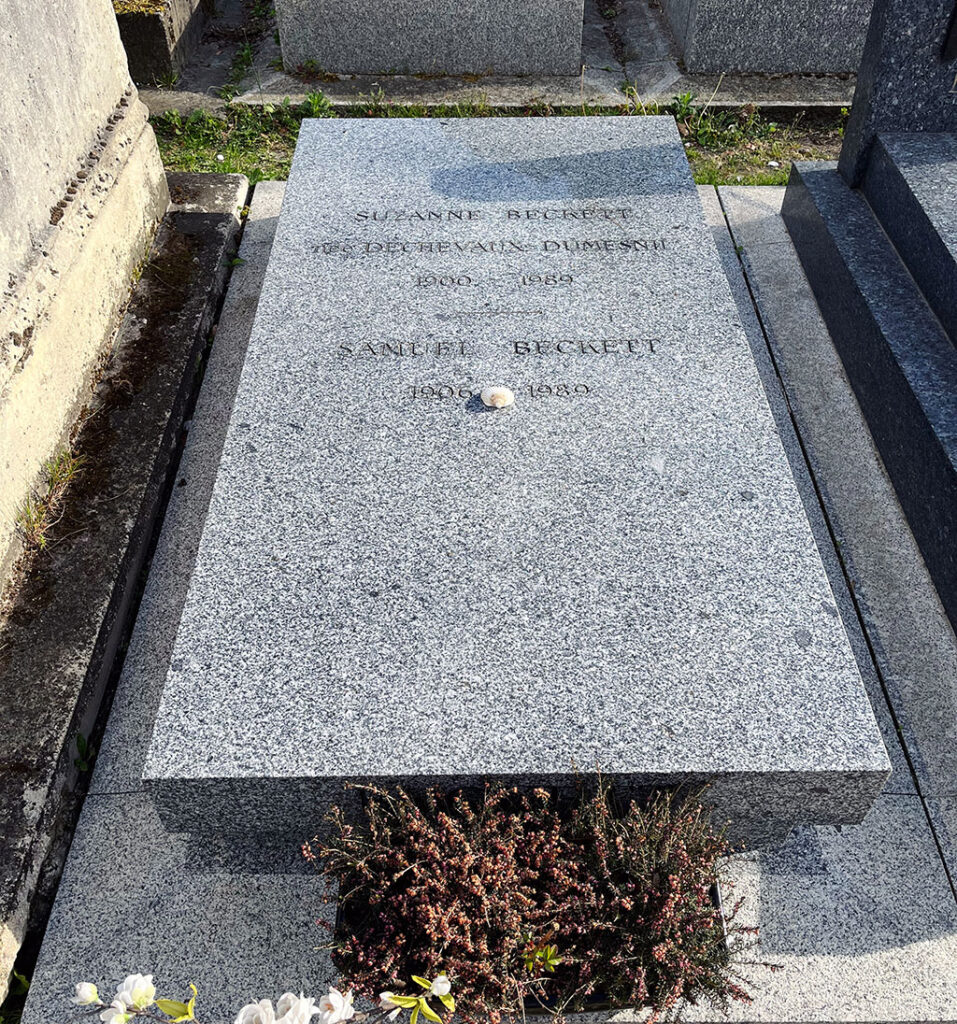
Serge Gainsbourg: The singer, songwriter, and lovable lush rests in Division 1. His grave is covered in flowers and metro tickets from visiting fans.
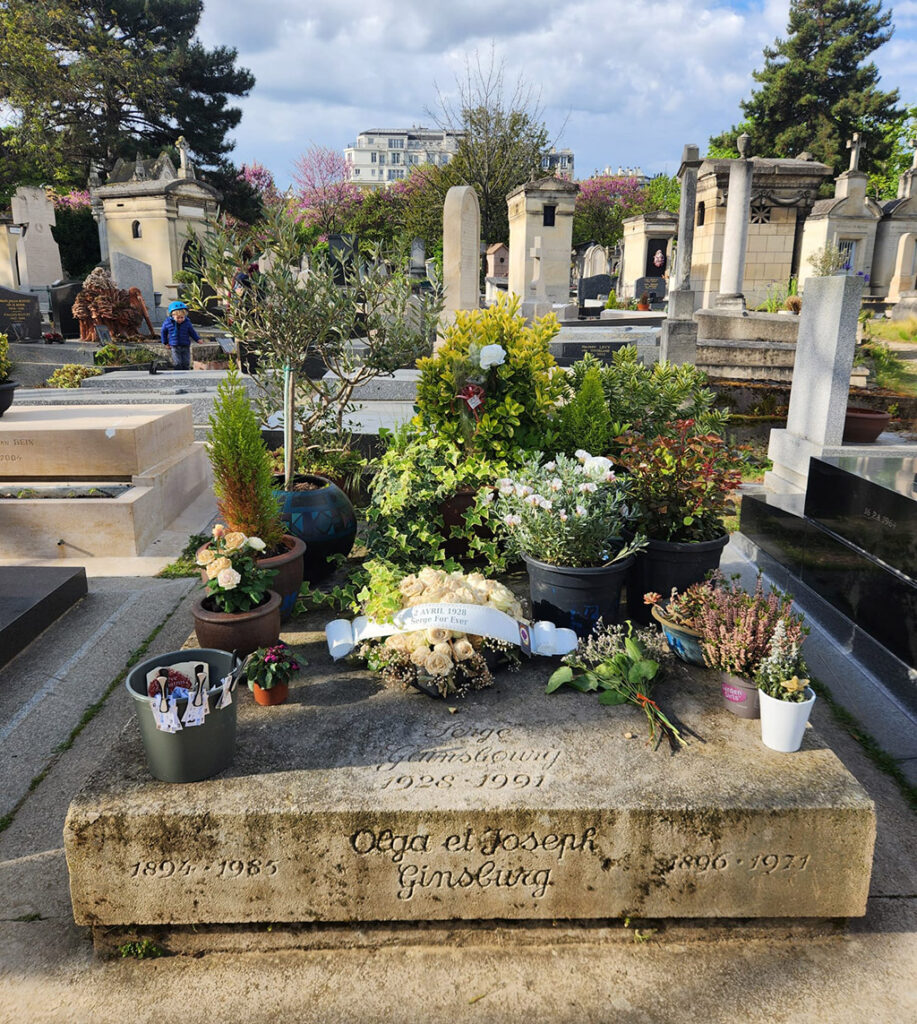
While we were looking for Gainsbourg, we saw an unusual bronze fish with breasts! It’s a sculpture titled Poisson Sirène (Fish Siren) by French artist Alex Berdal. On the reverse, the inscription reads, “Il fait son choix d’anchois et dîne d’une sardine,” which translates to “He makes his choice of anchovies and dines on a sardine.”
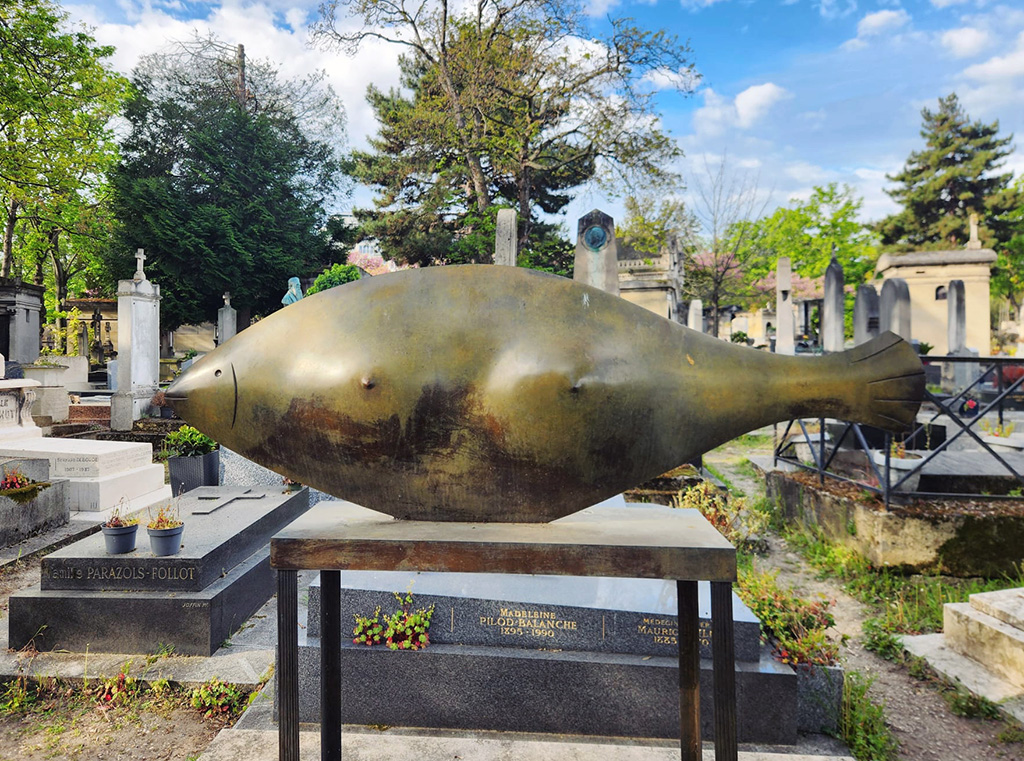
More notable graves I’m sorry to have missed:
- Agnes Varda and Jacques Demy: Shoot! I’m genuinely sorry to have missed these two cinema greats. I truly love Agnes Varda’s films.
- Charles Pigeon: inventor of the gasoline lamp, whose tomb depicts him and his wife in bed, reading by his invention.
- Guy de Maupassant: master of the short story.
- Man Ray: American photographer.
- Jean Seberg: American actress of French new wave fame.
- Le Chat: a colorful mosaic cat sculpture by Niki de Saint Phalle, created for her assistant and friend, Ricardo Menon.
What’s nearby?
- The Paris Catacombs: Just a short walk away, descend into the city’s underground ossuaries.
- Rue Daguerre: A charming market street, filled with bakeries, butchers, wine and produce shops. We stopped here for a coffee right after the cemetery.
Staying in Paris?
Disclosure: My recommended accommodations contain affiliate links, meaning I get a commission if you decide to make a purchase through my links, at no cost to you.
For our Paris trip, we stayed 2 nights in the cheapest AirBnB we could find in Le Marais, then 1 night at Korner Montmartre, a modest but clean and modern hotel in an amazing location in Montmartre. Here are some other places I might try, depending where you want to stay: Hôtel de Roubaix, Hotel Americain, Hôtel Le Regent Paris or Hotel La Folie.